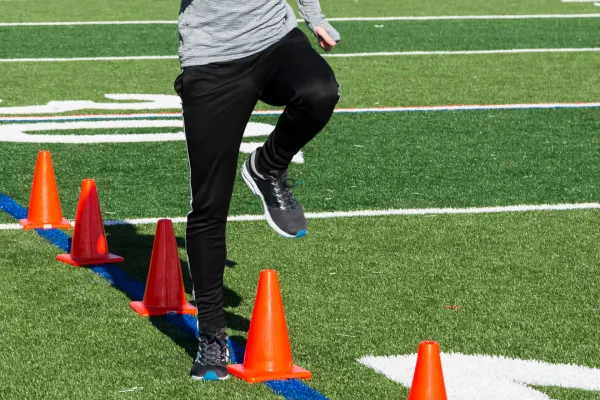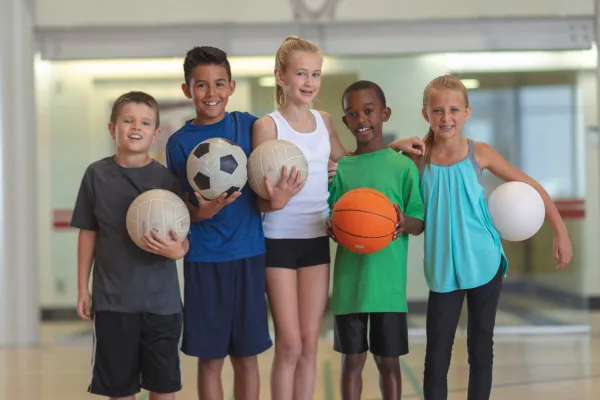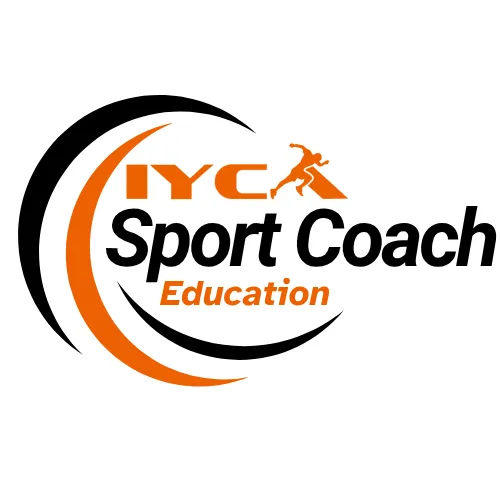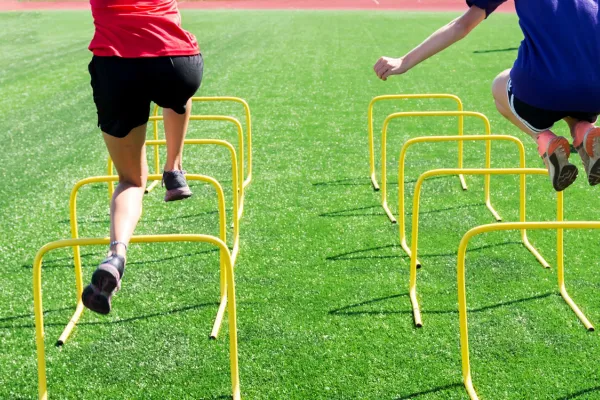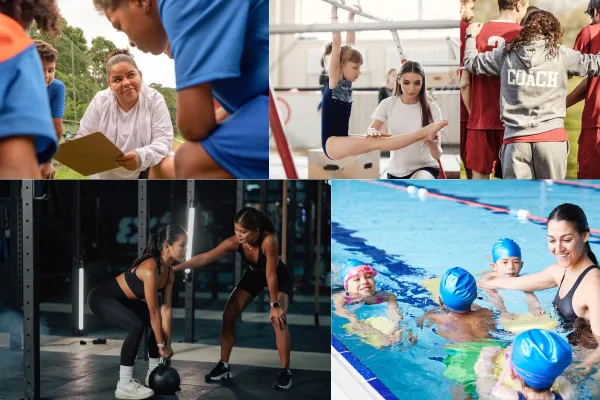
Why Moms Make Great Coaches: The Overlooked Powerhouse in Youth Sports
Mother’s Day is more than just flowers, breakfast in bed, and sweet handmade cards. It’s an opportunity to recognize the powerful and often underappreciated role that mothers play in youth sports-not just as supporters from the sidelines, but as exceptional coaches who bring a unique and deeply impactful skillset to the field, court, mat, or track.
Despite being underrepresented in the coaching world, moms have been quietly building some of the most influential and developmentally supportive environments for young athletes. Their natural strengths-empathy, communication, organization, multitasking, and relational intelligence-are not only parenting superpowers; they’re also coaching gold.
Involving your own children in the coaching process can also create rich opportunities for mutual growth, resilience, and deeper connection. Let’s explore the science and psychology behind why moms make great coaches and how their involvement benefits the entire team–especially their own kids.
The Science of Connection and Emotional Intelligence
One of the hallmarks of strong coaching is emotional intelligence—the ability to understand and manage one’s own emotions while also recognizing and influencing the emotions of others. Research consistently shows that women, on average, score higher on measures of empathy and emotional intelligence than men (Mayer, Caruso, & Salovey, 2016).
This isn’t about emotional coddling—it’s about using relational cues to motivate, support, and redirect athletes in developmentally appropriate ways. Youth athletes thrive under coaches who are attuned to their emotional states and who can provide encouragement, feedback, and correction in a psychologically safe way (Gould, Collins, Lauer, & Chung, 2007).
Moms are often well-practiced in this skill. From calming toddler tantrums to navigating teen social dynamics, mothers frequently engage in emotion coaching at home—an evidence-based parenting technique shown to improve children’s self-regulation and resilience (Gottman, Katz, & Hooven, 1996). Translated to the sports context, this means mom-coaches can foster emotionally safe spaces where athletes feel seen, supported, and empowered.
The Power of Modeling and Involving Your Own Kids
When moms coach and involve their own children in the process, whether as assistant helpers, practice participants, or team members, it’s not just about convenience. It’s a form of experiential learning and identity formation. Children who observe their mothers in leadership roles, especially in traditionally male-dominated environments like sports, are more likely to internalize those possibilities for themselves.
This exposure has been shown to impact children's beliefs about gender roles, leadership, and competence (Croft, Schmader, & Block, 2015). For daughters especially, watching their mother coach can challenge stereotypes and encourage self-efficacy and ambition. For sons, it broadens their understanding of authority, teamwork, and respect.
Moreover, involving your kids in your coaching journey can strengthen your relationship. Shared goals, mutual accountability, and joint experiences on the field can deepen trust and communication, especially when managed with clarity around boundaries (e.g., “I’m your coach at practice and your mom at home”).
Moms Are Multitasking Masters–and Coaches Need That
Great coaches are planners. They juggle rosters, logistics, communications, skill development, game strategy, emotional dynamics, and parent relations. Sound familiar?
Moms often manage complex schedules, run households, handle emotional regulation for multiple humans, and maintain relationships, all before noon. While multitasking isn’t always ideal for cognitive performance in high-focus tasks, it’s incredibly valuable in dynamic environments like youth sports, where priorities shift quickly and emotional agility matters (Rubinstein, Meyer, & Evans, 2001).
The executive functioning skills required to coordinate a family-task switching, working memory, and cognitive flexibility-are the same foundational skills elite coaches use when running practices or managing in-game scenarios (Diamond, 2013).
Communication: The Underrated Coaching Superpower
Clear, empathetic communication is one of the most effective tools in a coach’s toolkit. It builds trust, minimizes misunderstandings, and reinforces expectations and values. Moms, through years of attuned parenting, often develop a communication style that is not only instructive but emotionally resonant.
In a study on youth sport coaching effectiveness, communication ranked among the top predictors of perceived coaching success, particularly when it was paired with encouragement and developmental feedback (Smith, Smoll, & Cumming, 2007). Mom-coaches often default to this blend naturally, using calm tones, positive reinforcement, and clear expectations- skills that boost athlete motivation and team cohesion.
Relational Coaching and the “Whole Athlete” Approach
Youth athletes are still growing- not just physically, but emotionally, socially, and cognitively. Moms are often attuned to this developmental nuance and are more likely to take a “whole child” approach to coaching. They notice when an athlete is unusually quiet, withdrawn, or frustrated. They check in. They create space for conversations that go beyond stats and scores.
This holistic approach is supported by sports psychology literature, which emphasizes that athlete development is optimized when coaches attend to both performance and personal well-being (Fraser-Thomas, Côté, & Deakin, 2005).
It’s not that moms are better simply because they’re women or parents, but that many have honed a coaching style centered around care, communication, and connection. These qualities aren’t soft, they’re foundational to long-term athlete engagement and success.
Overcoming Stereotypes: “Mom-Coach” Isn’t Second-Rate
Unfortunately, many mom-coaches report feeling overlooked or under-acknowledged, especially in male-dominated sports environments. Some are seen as “fill-ins” or helpers, not serious leaders. This stereotype harms both coaches and kids.
The presence of moms in coaching roles challenges outdated norms and shows young athletes that leadership doesn’t have a gender. Representation matters, not only for girls who need to see women in powerful, competent roles, but for boys who benefit from seeing authority figures who lead with empathy and respect.
Coaching diversity, across gender, race, and background, enriches youth sports and mirrors the diverse teams we want our kids to thrive in, on and off the field or court.
What Makes a Great Coach (And Why Moms Fit the Bill)
The best coaches aren’t always the most decorated athletes or the loudest voices in the room. They are the ones who:
Build trust and connection.
Teach with clarity and compassion.
Model integrity and growth.
Adapt in real-time.
See the potential in every player–and help them believe in it too.
Many moms do these things every single day–at home and on the field. With proper support, training, and encouragement, they can bring those skills into youth sports in powerful, game-changing ways.
Encouraging More Moms to Step Into Coaching
If you're a mom considering coaching, know this: you don’t need to have played at the highest level to be effective. What matters most is your commitment to learning, your ability to connect, and your desire to help young athletes grow.
Organizations, leagues, and associations can support this by:
Actively recruiting mom-coaches.
Offering flexible schedules and childcare support.
Creating mentorship pipelines for women in coaching.
Highlighting and celebrating the contributions of mom-coaches year-round.
This Mother’s Day, let’s honor the incredible women who coach, not just with gratitude, but with action. Let’s give more moms the invitation, resources, and respect they deserve in the world of youth sports.
Listen to the Deep Dive:
About the Author:
Julie is an Author, CEO and Coach. She is the Brand Executive at the IYCA, the President & Founder of the Non-Profit Beyond The Game Alliance where they offer a full suite of workshops and support for teams, coaches and parents. In addition to her work as a business consultant and coach of coaches, leaders and entrepreneurs.
Julie is a Speed Development Specialist and Inner-Game Coach at the college, high school and youth levels.

Visit Julie’s Author Page
Other Articles by Julie Hatfield-Still
The Power of Play: Why Free Play is Essential For Youth Athletes at Every Age
The Cornerstone of Effective Coaching: Mastering EQ
References
Croft, A., Schmader, T., & Block, K. (2015). An underexamined source of STEM pipeline leakage: Parental influence on daughters’ math and science choices. Frontiers in Psychology, 6, 153.
Diamond, A. (2013). Executive functions. Annual Review of Psychology, 64, 135–168.
Fraser-Thomas, J. L., Côté, J., & Deakin, J. (2005). Youth sport programs: An avenue to foster positive youth development. Physical Education and Sport Pedagogy, 10(1), 19–40.
Gottman, J., Katz, L., & Hooven, C. (1996). Parental meta-emotion philosophy and the emotional life of families: Theoretical models and preliminary data. Journal of Family Psychology, 10(3), 243–268.
Gould, D., Collins, K., Lauer, L., & Chung, Y. (2007). Coaching life skills through football: A study of award winning high school coaches. Journal of Applied Sport Psychology, 19(1), 16–37.
Mayer, J. D., Caruso, D. R., & Salovey, P. (2016). The ability model of emotional intelligence: Principles and updates. Emotion Review, 8(4), 290–300.
Rubinstein, J. S., Meyer, D. E., & Evans, J. E. (2001). Executive control of cognitive processes in task switching. Journal of Experimental Psychology: Human Perception and Performance, 27(4), 763–797.
Smith, R. E., Smoll, F. L., & Cumming, S. P. (2007). Effects of a motivational climate intervention for coaches on young athletes’ sport performance anxiety. Journal of Sport and Exercise Psychology, 29(1), 39–59.




